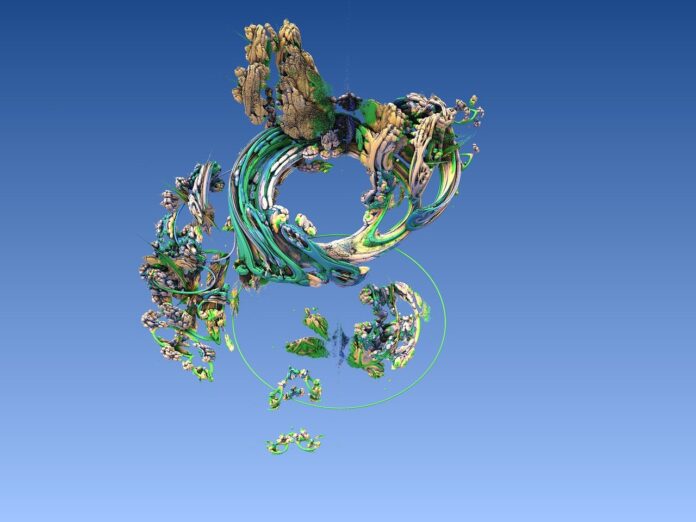DDI technology, which stands for DNS, DHCP, and IPAM, plays a pivotal role in the modern digital landscape, facilitating the seamless functioning of various network services. The acronym DDI encompasses a trio of critical networking protocols, each serving a distinct but interconnected purpose. DNS (Domain Name System) is responsible for translating domain names into IP addresses, enabling users to access websites and other online resources. DHCP (Dynamic Host Configuration Protocol) dynamically assigns IP addresses to devices within a network, while IPAM (IP Address Management) involves the centralized management of IP addresses and related resources. Together, these technologies form the backbone of network infrastructure, providing the essential framework for the internet’s functionality and accessibility.
DDI technology has undergone significant evolution over the years, adapting to the complex demands of modern networking environments. Initially, DNS primarily focused on mapping hostnames to IP addresses, but its role has expanded to include additional functionalities such as supporting various types of records, like mail exchange (MX) and service (SRV) records, which are crucial for email delivery and other network services. Similarly, DHCP has progressed from its fundamental task of automatically assigning and managing IP addresses to encompassing the allocation of additional configuration parameters, including subnet masks, default gateways, and domain name servers. Meanwhile, IPAM has transformed into a comprehensive system for effectively managing IP address spaces, maintaining a centralized repository of IP address-related data, and enabling efficient tracking and allocation of resources within an organization’s network infrastructure.
The integration of DDI technology within enterprise networks has led to enhanced efficiency, improved security, and streamlined network management. By leveraging these protocols, organizations can ensure seamless connectivity for their employees and customers, facilitating a smooth flow of data and communication. DNS, as a critical component of DDI, serves as the cornerstone for internet accessibility, enabling users to reach websites and services through user-friendly domain names, rather than cumbersome IP addresses. It plays a fundamental role in the translation of human-readable domain names into machine-readable IP addresses, thereby ensuring that users can easily navigate the internet without the need to memorize complex strings of numerical identifiers.
In the contemporary digital landscape, the demand for reliable and robust DDI solutions has intensified, driven by the proliferation of internet-enabled devices, the emergence of cloud computing, and the increasing complexity of network infrastructures. Businesses, both large and small, are recognizing the significance of deploying efficient DDI technologies to optimize network performance, enhance security measures, and streamline the management of their IT resources. With the rapid expansion of the Internet of Things (IoT) and the imminent arrival of 5G technology, the importance of implementing scalable and agile DDI solutions has become more pronounced than ever, as organizations seek to accommodate the growing influx of connected devices and the data they generate.
Furthermore, the advent of virtualization and cloud computing has necessitated the integration of DDI technology within these environments to ensure the seamless operation of virtual networks and the efficient allocation of resources. As enterprises increasingly transition toward hybrid and multi-cloud infrastructures, the effective management of IP addresses and the dynamic allocation of resources across diverse environments have become critical challenges that demand sophisticated DDI solutions capable of adapting to these complex and distributed architectures. By implementing robust DDI technologies, businesses can achieve greater agility, scalability, and resilience, enabling them to effectively manage their network resources across on-premises, cloud, and hybrid environments while maintaining high levels of performance and security.
DDI technology also plays a pivotal role in bolstering network security by enabling the implementation of robust access controls, ensuring the integrity of DNS data, and mitigating the risks associated with potential cyber threats. Through the implementation of secure DNS protocols, such as DNSSEC (Domain Name System Security Extensions), organizations can authenticate and validate DNS responses, thereby preventing unauthorized access and protecting users from malicious activities, such as DNS cache poisoning and man-in-the-middle attacks. DHCP, when integrated with appropriate security measures, helps in the prevention of unauthorized devices from gaining access to the network, thus fortifying the overall security posture of the network infrastructure.
In the context of IPAM, robust management and monitoring capabilities enable organizations to maintain a comprehensive inventory of IP addresses, monitor address utilization, and detect any anomalies or unauthorized activities within the network. By implementing efficient IP address management practices, businesses can effectively track IP allocations, identify unused or underutilized addresses, and prevent IP conflicts, thereby optimizing the utilization of available resources and minimizing the risks associated with IP address mismanagement.
Moreover, the advent of IPv6 has presented new challenges and opportunities for DDI technology, as the transition to this protocol necessitates the adoption of updated DDI solutions capable of effectively managing the expanded address space and the unique requirements of IPv6 networking. DDI technologies that support both IPv4 and IPv6 seamlessly enable organizations to manage and transition between the two protocols, ensuring a smooth and efficient migration process without disrupting network operations or causing compatibility issues. As the industry continues to embrace IPv6 as the future of internet addressing, the integration of robust DDI solutions that can accommodate the complexities of this protocol has become imperative for organizations aiming to future-proof their network infrastructures and remain competitive in the ever-evolving digital landscape.
DDI technology remains a critical component of modern networking infrastructure, facilitating the efficient management of DNS, DHCP, and IPAM services within enterprise networks. Through the seamless integration of these protocols, organizations can achieve enhanced network performance, improved security measures, and streamlined management of their IT resources, thereby enabling them to adapt to the evolving demands of the digital era and ensure the seamless operation of their network infrastructures. As technology continues to advance and network environments become increasingly complex, the role of DDI technology will continue to evolve, playing a pivotal role in shaping the future of network management and connectivity.
In conclusion, DDI technology, encompassing DNS, DHCP, and IPAM, stands as a fundamental pillar of modern network infrastructure, providing essential services for seamless connectivity, efficient resource management, and robust security measures. Its evolution over the years has enabled organizations to navigate the complexities of the digital landscape, accommodating the proliferation of internet-enabled devices, the emergence of cloud computing, and the transition to IPv6. By leveraging DDI technology, businesses can optimize network performance, enhance security measures, and streamline the management of their IT resources, ensuring a resilient and adaptable network infrastructure that can meet the demands of the evolving digital era. As technology continues to progress, the continued integration and advancement of DDI solutions will remain crucial for organizations seeking to maintain a competitive edge and adapt to the ever-changing demands of the digital world.






















